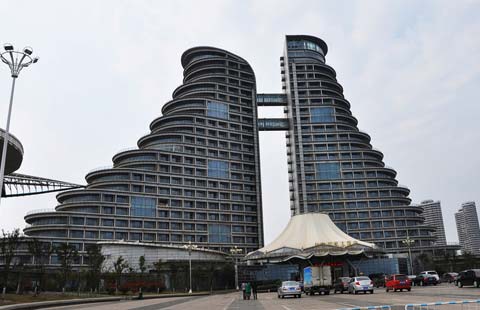China, Britain aim at more medical cooperation
( chinadaily.com.cn ) Updated: 2014-04-04 19:37:42The 2014 China-Britain International Forum on Medical Education was held in Beijing on April 3.
Government officials, scholars and administrative personnel from Peking University Health Science Center, the University of Birmingham and many other famous medical schools in China attended the conference and delivered speeches on related issues.
At the forum, the Chinese graduate medical education direction committee, Peking University Health Science Center, and Health Education England, which is responsible for the education, training and professional development of the healthcare workforce in England, and the University of Birmingham signed a cooperative agreement to organize and direct overseas exchanges between China and Britain of clinical trainers for graduate students majoring in General Practice.
Ian Cumming, chief executive of Health Education England, explained to the audience the organization's operation and function. He talked about how they implement workforce planning for England's publicly funded healthcare system, the National Health Service, offer life-long learning opportunities and ensure the education and training health workers receive match people's people.
He also talked about the challenges the system faces, such as the impact of losing medical talent that leaves Britain.
Ke Yang, the deputy director of Peking University Health Science Center, said China has a similar educational system for medical students as Britain's, and the center will learn from overseas' experiences to provide better medical education to its students.
Ke also delivered a speech on the challenges China's medical education faces.
Among them, she emphasized that the health community should take a more objective perspective of the impact of advances in medical technology.
People tend to hold an "all-is-great" attitude to medical advancement and overlook the negatives such progress can bring, Ke said.
For example, with great improvement in medical technology, today's medical education focuses on training elite medical specialists, but the aging Chinese society is burdened with chronic disease, which needs community-based general practitioners, rather than high-end specialists, to provide basic health care and prevention.
Also, advances in medical technology, including medical imaging, make the division of hospital departments more complicated and can easily mislead patients when they are deciding which department to visit.
Besides, technology advances also increase patients' expectations for their doctors, which is not always answered well by reality, and may worsen doctor-patient relations, Ke added.
|
|
|
|
|
|
|
|
European Weekly
 We will not give up search, Li vows
We will not give up search, Li vows
International hunt for missing airliner continues after fruitless six-day search






















